This story was produced by Grist and co-published with the Kentucky Center for Investigative Reporting.
The workers had spent the morning of November 8, 2021, clipping, trussing, and trellising hundreds of thousands of tomato plants that twisted scrutinizingly four stories into the air. They were inside one of the world’s largest high-tech greenhouses, which sits on increasingly than 60 acres of a former cattle field in Morehead, Kentucky.
As one of the greenhouse workers, who I’ll undeniability Nora, sat lanugo for lunch in the worker canteen, she heard her colleagues whisper well-nigh their new task for the day. U.S. Senator Mitch McConnell would be visiting that afternoon to requite a speech praising the greenhouse company, AppHarvest. Surpassing he arrived, management had to make sure their Spanish-speaking colleagues disappeared.
“We had very little time,” recalled Nora, whose real name is stuff withheld considering she is subject to a nondisclosure agreement. “We had to get them off the premises and yonder surpassing he got there.”
Nora watched her coworkers get dismissed, grab their stuff, and leave on white buses unseat for a trio of small motels where the largely Mexican contract workers lived four or five to a room. When McConnell arrived, Nora joined her remaining, mostly-white colleagues on the sunny lawn. Their wipe T-shirts advertised AppHarvest’s name and logo, intended to invoke both the Appalachian region where they worked and the iconic branding of Apple — Silicon Valley by way of the Middle American upstart.
“We all know the ripen of the coal industry only got worse, and so this [AppHarvest] gives us hope,” the senator said, praising the local labor gravity encircling him. “You are the real leaders, I think, in whence to fully develop all of Kentucky’s potential.”
It was a familiar message, one that had been touted over and over in nationally televised interviews, public filings, and visitor reports by AppHarvest’s then-CEO, a Kentucky native and entrepreneur named Jonathan Webb. In 2018, the 32-year-old Webb returned home with the promise of towers a dozen high-tech, hydroponic indoor farms wideness Eastern Kentucky and the surrounding region, growing tomatoes, cucumbers, berries, and lettuce. Not only would he be piloting an wide form of climate-resilient agriculture, he would moreover be generating gainful, blue-collar employment in some of the country’s most economically-distressed counties, where he argued that the coal industry’s downfall left a void that could be filled by sustainable industry.

Workers would start at $13 an hour, with hefty productivity bonuses and a track to internal promotions. Then there were the perks: 100 percent employer-paid health insurance premiums for both employees and their families, monthly boxes of farm-fresh produce, and stock options once the visitor went public. In a region terrorized by the opioid epidemic, AppHarvest moreover offered jobs to formerly incarcerated people in recovery from addiction.
Webb’s worker-centric pitch raised over $700 million for AppHarvest to get off the ground and catapulted him into the national spotlight, with largely glowing coverage from The Wall Street Journal, The New York Times, CNN, and Forbes. It moreover convinced a number of big names to join the company’s board: Martha Stewart, activist investor Jeffrey Ubben, former Untellable Foods CFO David Lee, and J.D. Vance, the venture capitalist and Hillbilly Elegy author who would later win referendum to a U.S. Senate seat in Ohio with a Trump-inspired, anti-immigrant message.
McConnell’s speech in Morehead highlighted flipside major theme in AppHarvest’s advertising: replacing what Webb has tabbed “dirty” agricultural imports from Mexico with safe, nutritious berries, lettuce, and tomatoes from inside Appalachia.
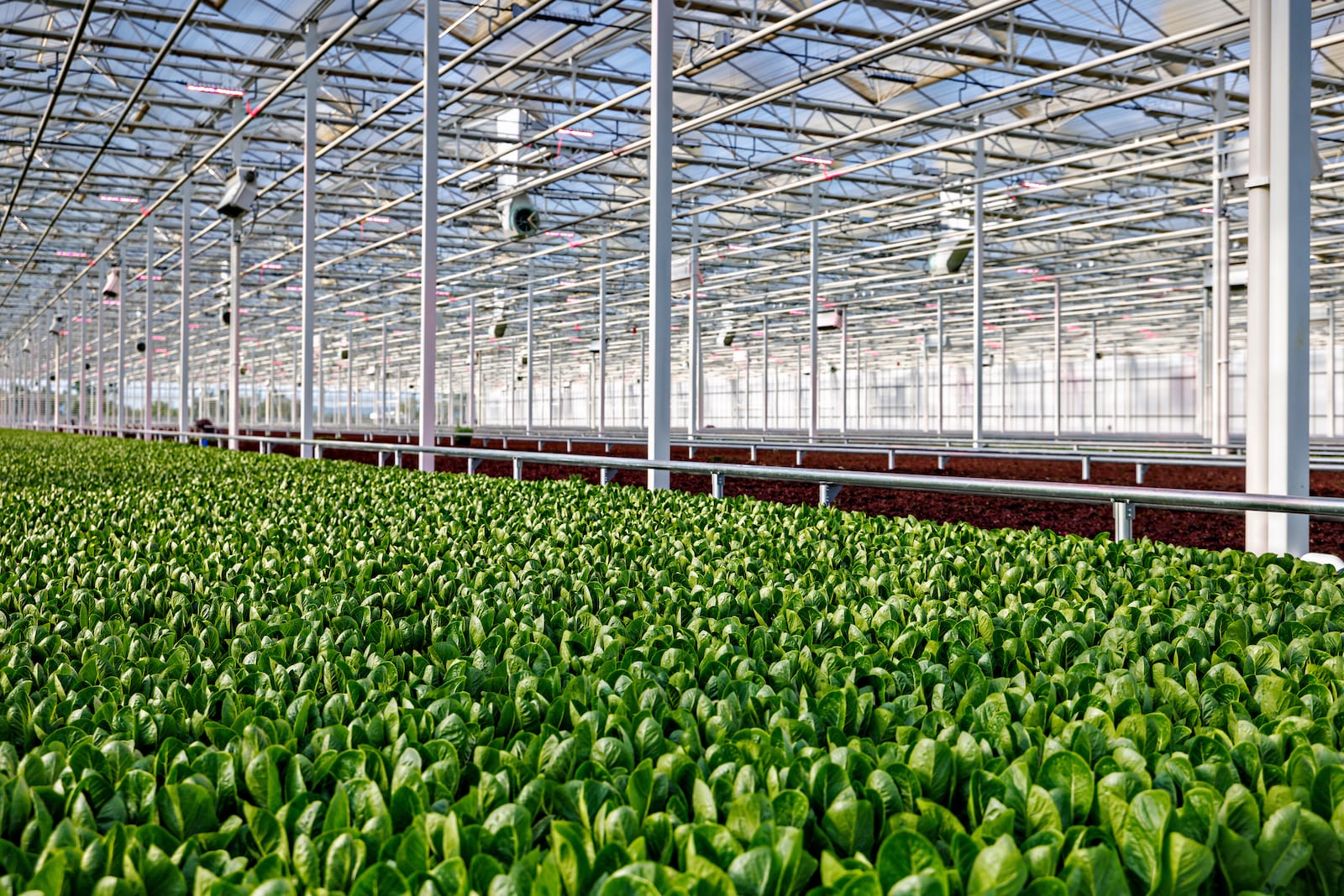
Lettuce grows in AppHarvest’s greenhouse in Berea, Kentucky. Courtesy of AppHarvest

“I like the idea of taking the tomato market yonder from the Mexicans,” McConnell said that afternoon, equal to an employee’s video recording of the event. Some workers looked virtually in surprise. Others seated overdue McConnell rocked nervously in chairs, trying to reservation the vision of friends on the lawn. Applause can be heard in the recording, but at least one employee booed. The moment felt rigid and frail, like a ship just whence to sink unelevated the sea.
“No wonder they sent the f—ing contractors [home],” one worker said, turning to a coworker off-camera.
The discontent that day wasn’t just well-nigh optics, or fairness to the contract workers. It was the culmination of a year of frustration with a visitor that had promised to unhook both Grade A tomatoes and fulfilling rural employment but was falling dramatically short on both counts. Plane as Senator McConnell sang the company’s praises, AppHarvest was once well on its way to a spectacular collapse, the full story of which has never been told until now. The prestigious startup’s demise moreover highlights the dangers of expanding and relying on high-tech, indoor agricultural schemes that promise shortcuts to making farming increasingly climate-friendly.
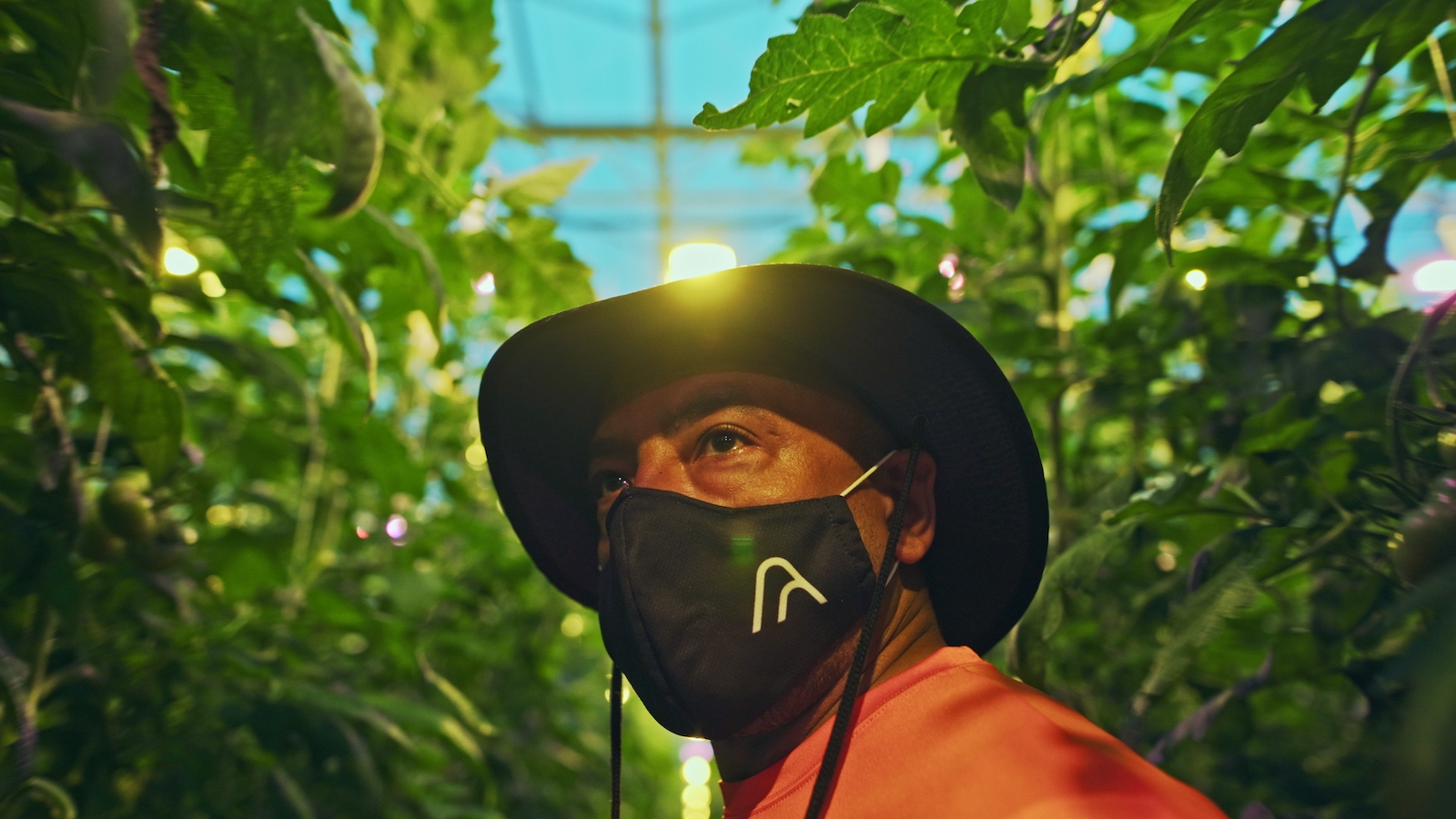
A year earlier, Nora had seen a billboard for AppHarvest on a state highway. She was hired without hearing a version of the company’s pitch that promised a strict 40-hour week and the opportunity to whop — something she had rarely found in the service jobs she’d worked since graduating upper school. The promise was quickly broken: She was scrutinizingly immediately told she needed to start working weekend overtime or her job would be in jeopardy. She found that her training in tomato caretaking — planting, pruning, harvesting — left much to be desired, and she and other workers were often tumbled over their job duties and requirements.
By summer, the greenhouse began reaching dangerously upper indoor temperatures, and Nora watched coworkers struggle with vaporization and heat exhaustion. Turnover spiked. Nora ripened asthma and anxiety, but she stayed the course.
That same summer, the visitor told investors that low productivity and upper turnover at its Morehead greenhouse had led to a $32 million net loss. Stockholders then filed the first of five lawsuits alleging securities fraud, noting that AppHarvest’s own leadership had repeatedly cited “employee training, turnover, and poor work ethic” as the root causes of the company’s failure to reach profitability.
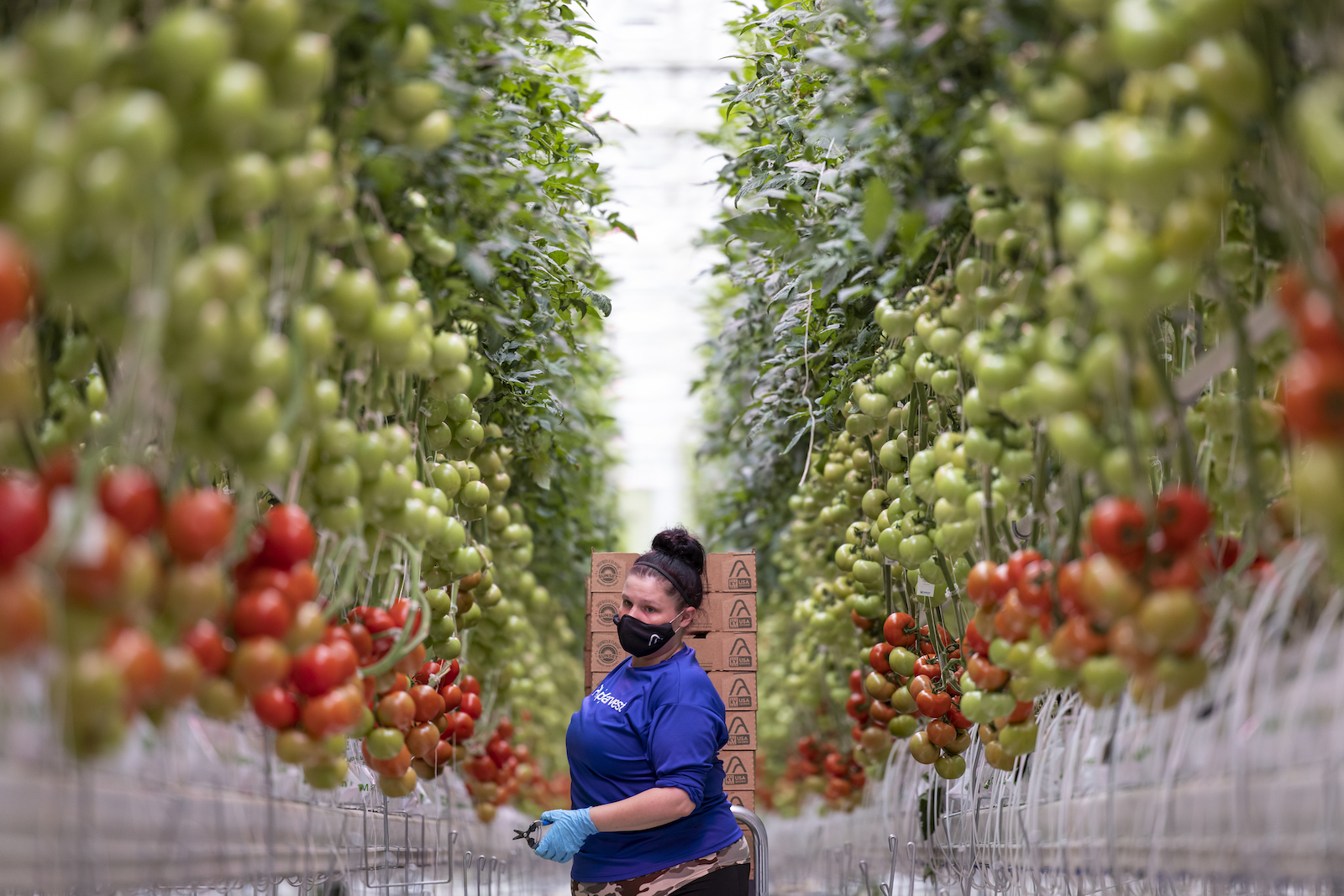
As workers soldiered on over the next two years, AppHarvest’s financial position unfurled to decline. This summer, lenders started taxing repayment of $182 million. Soon after, Webb was out as CEO, and AppHarvest supposed Chapter 11 bankruptcy. Bankruptcy filings show that the visitor owes over $1.4 million to at least three agricultural work placement agencies that help farms fill temporary agricultural jobs with foreign nationals. In September, Webb was fired from the visitor altogether. All of AppHarvest’s five facilities in Kentucky — two in Morehead, and one each in Berea, Richmond, and Somerset — are now in the hands of new owners. (In response to a detailed list of questions for this story, AppHarvest’s senior legal officer, Gary Broadbent, said that the visitor has no standing operations and was not in a position to respond.)
A new investigation from Grist finds that what went on inside the visitor from its primeval days sink little resemblance to the sustainable, worker-friendly operation that Webb publicly touted. State documents obtained through unshut records requests, including complaints to Kentucky’s Occupational Safety and Health Committee, as well as interviews with 12 former employees from both the flagship Morehead greenhouse and corporate office, reveal issues widespread wideness AppHarvest’s operations. They expose how unsafe working conditions, negligible training that failed to prepare workers for their job requirements, and an unprofessional workplace doomed the visitor nearly from the start.
Editor’s note: Due to fear of legal reprisal from AppHarvest, all but three former employees interviewed for this story — including Nora, whose name is a pseudonym — requested anonymity to speak veraciously well-nigh their experiences; AppHarvest employees signed nondisclosure agreements upon their hire, which have no termination stage in the state of Kentucky.

Inside the Morehead greenhouse, the heat alphabetize could spike to 155 degrees Fahrenheit, equal to worker interviews, leading to dehydration, heat exhaustion, and medical emergencies. The stress of the work environment led to panic attacks, ideation of personal harm, and relapses into addiction. Less than a year without the first seeds had been planted, benefits like employer-paid health insurance ended, visitor stocks plummeted, harvests failed to yield sufficient Grade A produce, and AppHarvest pivoted from uplifting Appalachia’s blue-collar workforce to bussing in workers from outside the region.
“My whole view of AppHarvest was we were all sold on this trappy pipe dream,” one corporate worker told Grist. “This is sustainable, this is new, we’re going to make it. It turned out to just be a f—ing nightmare.”
Webb claims a connection to Eastern Kentucky through his ancestors: His great-grandfather died in a coal mining wrecking in Whitley County, where he says his grandmother grew up on a dirt floor. Without graduation from the University of Kentucky’s merchantry school, Webb moved to Washington, D.C., where he worked as a contractor on renewable energy projects under the U.S. Army Office of Energy Initiatives. Then, he read well-nigh controlled environment agriculture, or CEA, in a 2017 National Geographic story.
He quickly decided CEA could be as important a climate solution as renewable energy or electric cars — and as good an investment. CEA proponents oppose both that farming needs to wilt less climate-dependent in a warming world and that its land footprint needs to shrink dramatically if the world hopes to preserve biodiversity and stat sinks like forests. Indoor facilities outfitted with shielding climate controls could theoretically succeed this. For inspiration, Webb looked to the Netherlands, where high-tech greenhouses successfully grow produce for export year-round, on a total vineyard that’s only twice the size of Manhattan. Without any prior professional wits in farming, he quit his job and founded AppHarvest the next year.

Webb was whimsically vacated in his bullishness on CEA. Congress’ 2018 Sublet Bill, which expired older this year, expanded support of CEA research and minutiae to mitigate supplies system risks, creating a federal Office of Urban Threshing and Innovative Production and distributing over $40 million in grants between 2020 and 2022. Over the last decade, the sustainability treatise for CEA has helped the sector raise billions of dollars in private investments for a variety of startups.
Unlike in the Netherlands, where indoor farmers have learned weightier practices over half a century of trial and error, American startups like AppHarvest have overwhelmingly failed to turn a profit, or plane unravel even. The crux of the problem is that roughly 75 percent of the industry’s financing stem from labor and energy. And while traditional threshing works considering it takes wholesomeness of natural conditions, CEA has to artificially produce optimal growing conditions and power them with electricity. In a world still largely powered by commodified fossil fuels — nearly 70 percent of Kentucky’s grid remains coal-fired — that’s going to be prohibitively expensive in most places.
“It’s the fundamental physics rencontre of turning fossil fuel energy into food,” said Bruce Bugbee, a plant scientist at Utah State University.
Even as the U.S. CEA market is predicted to be worth $3 billion by 2024, the upper financing of running these facilities have piled quickly, leading to a domino of bankruptcies and closures over the last two years. Fifth Season, a Pennsylvania-based indoor sublet that raised $35 million to sell salad kits in over 1,200 stores, closed without any warning a year ago, turning off its electricity and leaving its lettuce plants to die. In April, the Florida-based Kalera, which raised $100 million and became the first publicly-listed vertical sublet in the U.S., filed for Chapter 11 bankruptcy. Then, in June, plane 19-year-old AeroFarms, which had raised hundreds of millions of dollars, filed for bankruptcy, though it claims it will protract some operations while restructuring the business.

“People with billions of dollars became enlightened of this industry and they think it’s the wave of the future,” said Bugbee, “but it doesn’t midpoint there’s been a scientific shift. It staggers me how much money they’re putting in.”
Without a viable solution to CEA’s fundamental energy dilemma, AppHarvest took increasingly drastic measures to wring profits out of the problem that has plagued threshing for as long as humans have been farming: labor.
By the time she turned 30, Ahna Baxter’s life had long been dictated by the taxing hours and low wages of jobs in restaurants and factories. But a temporary gig at a vineyard near her hometown of Frankfort, Kentucky, gave her a glimpse of something different. She learned to printing grapes into wine; she grew cucumbers and cantaloupe and worshiped the sunflowers that waved whilom her head. For the next few years, she dreamt of starting a small sublet of her own.
That dream zestless up just surpassing the COVID-19 lockdowns. Baxter had just lost both a friend and family member to suicide, and she became dependent on her prescription Adderall to get through the day and swig to sleep at night. She x-rated her fledgling agricultural business, Ahna’s All Naturals, and checked into a 30-day rehab program.
As Baxter got when on her feet without rehab, she found repletion returning from work every day in time to tune into Governor Andy Beshear’s evening updates. The televised talks were like Mister Rogers for adults: a familiar voice for Kentuckians dealing with the confusion, loneliness, and grief brought by the pandemic, not to mention everything else Baxter had just been through.
In the summer of 2020, Beshear spoken something that revived Baxter’s hope in a future tied to the land: AppHarvest, a nascent visitor turning heads with its promise of cutting-edge agritech, was hiring in Eastern Kentucky. The startup was offering the highest wage she’d overly made, opportunities for promotions, and training in agriculture. Baxter immediately went online and applied.
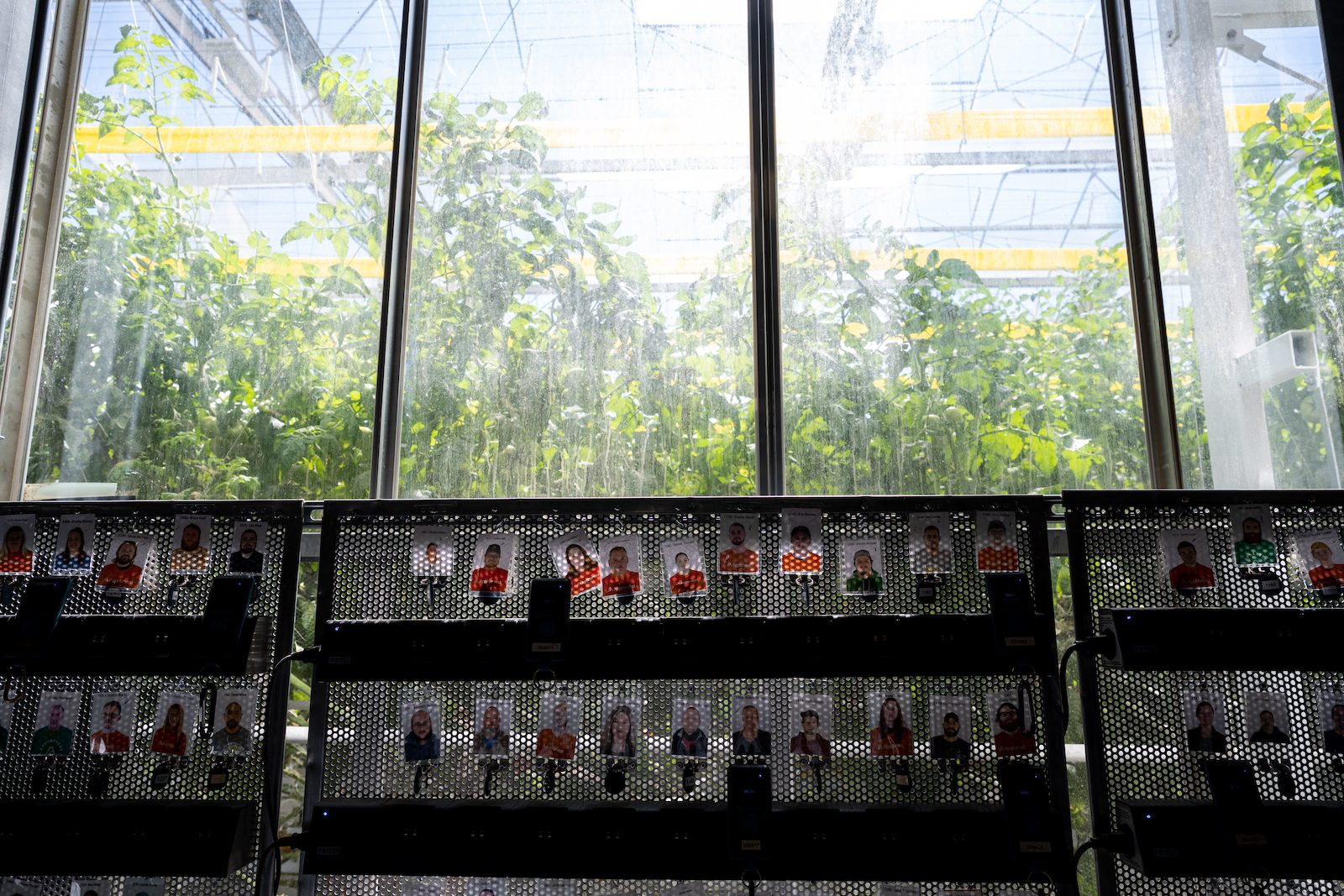
About a month later, she got a phone undeniability from AppHarvest and met the hiring managers in Morehead. The interview was unlike any she’d had before. Instead of pressing her on why she would be a good fit for the position, AppHarvest seemed to be selling its vision to her. She thought this overt enthusiasm, coupled with a lack of clarity on vital job duties, was odd, but the opportunity was just too good to pass up. She quit her job as a landscape foreman, sold most of her belongings, and moved her RV to a friend’s yard for her first month of employment surpassing renting a trailer in the Cave Run Mobile Home Park in Morehead during the fall of 2020. Without rival addiction, Baxter thought this wipe unravel could help make a largest life for herself and her then-16-year-old son, Eli, whom she’d had at 17.
“I sacrificed a lot, but I felt that this was it,” Baxter told me. “I felt like this was the end all be all. This is the visitor I’m going to be with forever.”
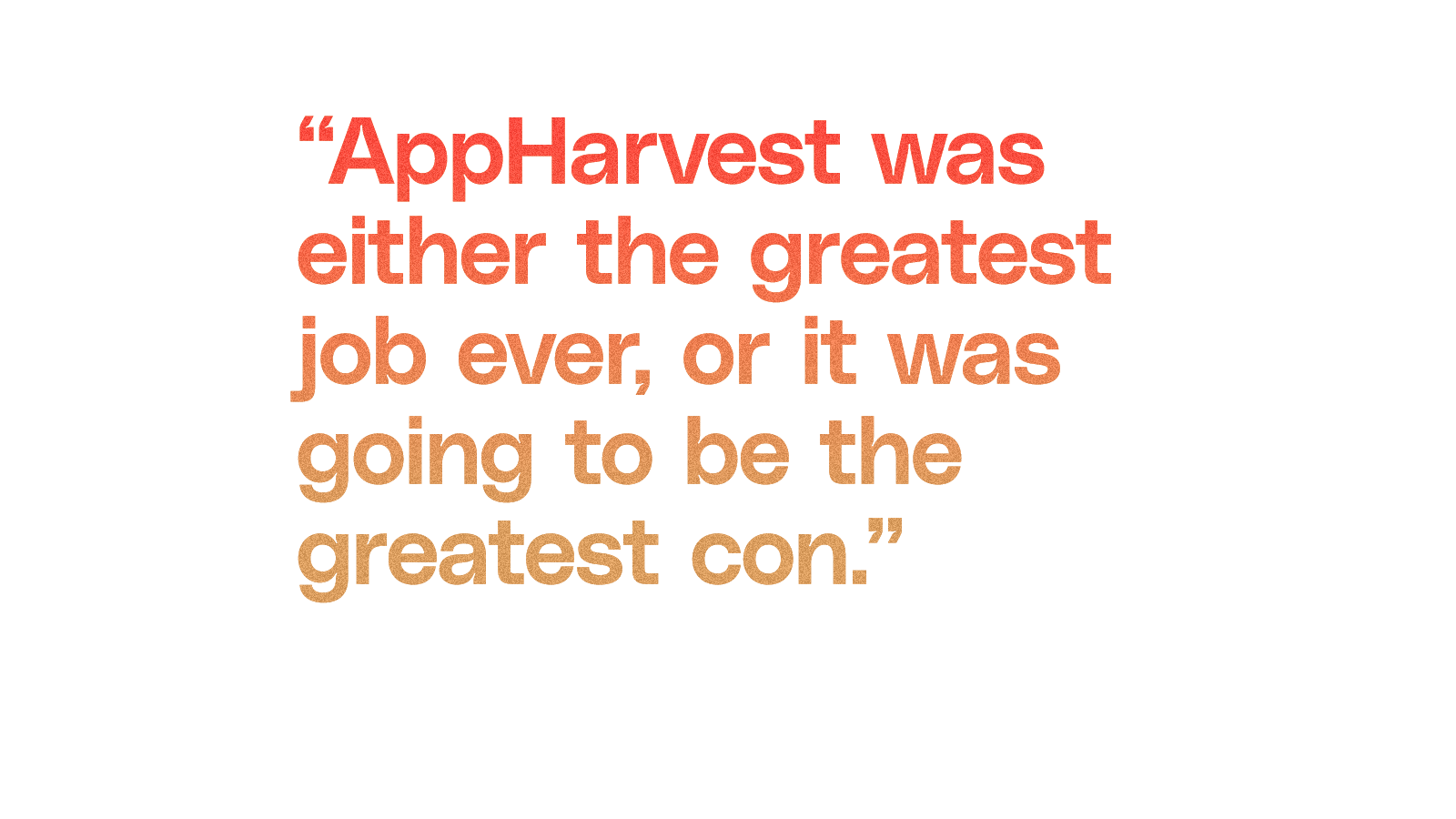
During orientation — a pep rally-style event with loud country music, cheering employees, and team-building games that lasted roughly a week — employees watched the David Attenborough documentary A Life on Our Planet. They learned that while traditional threshing leaves soils depleted, their work growing produce indoors could save the supplies system. But the intricacies of working with tomato plants were largely glossed over during orientation, equal to worker interviews. While some managers had formerly worked in indoor agriculture, most workers were new to the industry. Nora, who unromantic virtually the same time as Baxter without seeing an AppHarvest billboard go up in Morehead, recalled her husband was suspicious.
“He thought it was a bad idea from the get go,” said Nora. “I fed him the same lines they fed me: It’s a start up, it takes time working out the kinks.” Her husband replied that AppHarvest was either the greatest job ever, or it was going to be the greatest con.
But the visitor culture was contagious. When Nora and Baxter finally started working as clippers — attaching tomato vines to plastic hooks that hung from the ceiling — they were so excited that they often skipped between the rows of plants. Nora told herself she was making a difference.
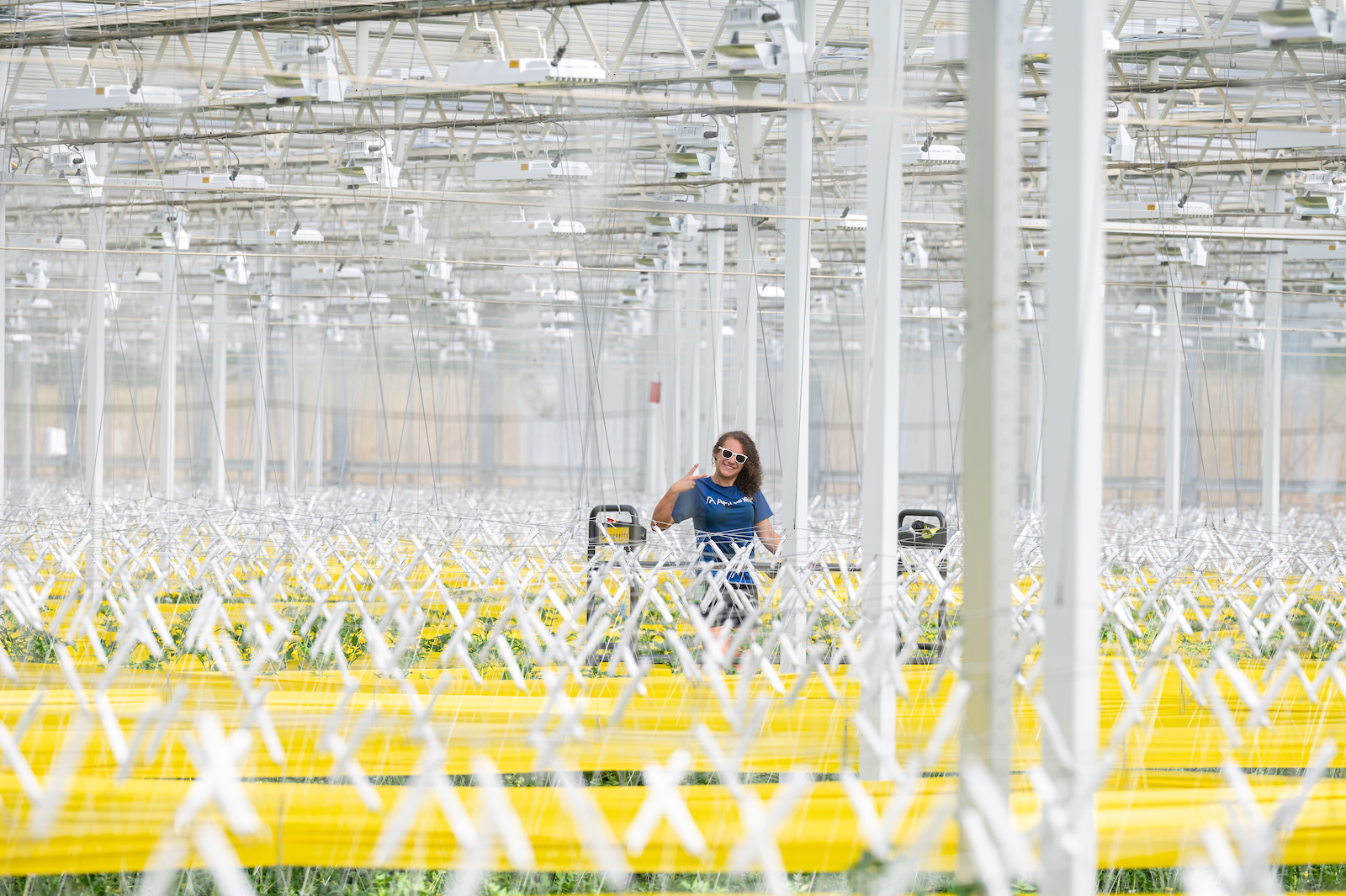
Then, within weeks of the Morehead greenhouse opening in November of 2020, Nora and her colleagues were told they needed to work overtime.
“Ten minutes surpassing the end of the shift they’d come over and say, ‘Due to a lack of ubiety we’re doing work duration until it’s done,’” Nora remembered. “So either you stay and work, or lose your job. You’d be so worn out and overheated and dehydrated you’d do anything they’d want you to do.”
An internal memo circulated to all Morehead employees the pursuit spring confirms the policy. “At any given time an emergency could require firsthand mandatory Overtime,” the document read, while attempting to maintain a sunny tone: “Working in a greenhouse has its challenges and one of them is keeping our Plants Happy!” Nora said that when she complained, her supervisor told her that she “needed to learn to sacrifice.”
But no value of overtime could recoup for their light-touch training and resulting ravages over how exactly to truss, de-leaf, and prune the hundreds of thousands plants in the greenhouse. Plant diseases took hold. Tomatoes started rotting, resulting in scrutinizingly 50 percent wasted product, equal to the securities fraud suit. The bonuses workers were promised felt untellable to earn. Turnover spiked.
“They took people who had never washed-up this before, threw them in a greenhouse, gave us minimal training on how to do it, and expected us to produce Grade A tomatoes when all we’d washed-up was yard farming,” said Nora. “No one was overly on the same page. No one in any greenhouse used the same techniques, and I think that was 90 percent of their quality issue.”
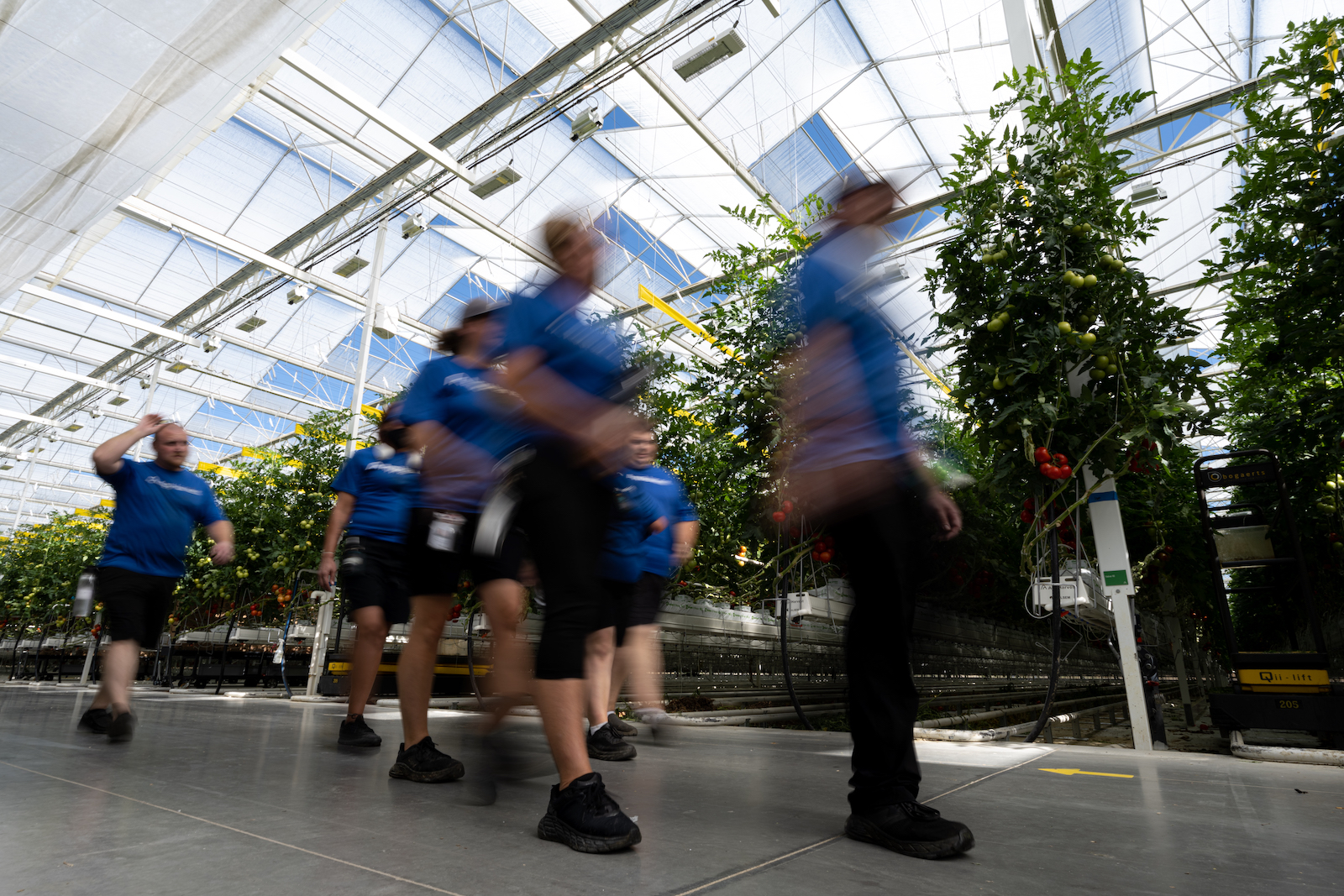
While AppHarvest’s failings were rhadamanthine well-spoken to its workers plane in its early months, Webb and other visitor leaders were still raising money. Without 12 rounds of funding, AppHarvest had secured almost $800 million from funders like the U.S. Department of Threshing and Rise of the Rest, a D.C.-based seed wanted firm focused on Middle American startups. By early 2021, it became the first controlled environment threshing visitor in the United States to go public, at $35.69 per share. Webb personally got a $1.5 million bonus for the stock listing and $31 million in stock awards. The company’s initial valuation of $1 billion soon grew to $3.7 billion.
One afternoon during the first summer of AppHarvest’s operation, then-55-year-old Janet Moore threw up at least three times from heat vacuum in the washroom outside the greenhouse. Other workers recalled seeing coworkers pass out from heat and leave on steel trolleys — or, sometimes, in ambulances.
Though the position was a financial resurgence on the $7 an hour Moore once made working on a tobacco farm, the heat inside the greenhouse turned out to be far worse than an outdoor farm. One worker tabbed it “an wool grueling hell on earth.” Workers were only unliable to leave the greenhouse if the heat alphabetize reached 140 degrees Fahrenheit, equal to a worker who helped those suffering from heat exhaustion. Flipside worker said thermometers were covered in gray trash tons or moved to poles where workers couldn’t see a heat alphabetize that the medical teammate said once peaked at 155 degrees Fahrenheit. Once the visitor began having productivity challenges, it seemed like no temperature was upper unbearable to relieve workers of their greenhouse shifts; equal to worker interviews, managers would simply unorganized workers in 30-minute increments between the greenhouse and the refrigerated packhouse.

Starting as early as August 2020, during construction of the Morehead greenhouse, workers filed eight complaints to the Kentucky Education and Labor Cabinet for Occupational Safety and Health. Scrutinizingly half of those complaints, revealed for the first time in an unshut records request received by Grist, concerned the heat in the Morehead greenhouse and a second AppHarvest greenhouse in Berea, a town well-nigh 80 miles southwest. In July 2021, one complaint said workers were laboring in a heat alphabetize ranging from 115 to 136 degrees Fahrenheit.
“For the past few days no one has taken any temperatures,” the labor filing reads, subtracting that the visitor doesn’t indulge workers to go home early, plane though they work in uncontrived sunlight and several suffered heat exhaustion. (While no federal heat standard exists for workers, a heat alphabetize — what the air feels like when combining relative humidity and air temperature — whilom 103 degrees Fahrenheit presents “danger,” equal to the National Weather Service, while anything over 126 degrees Fahrenheit indicates “extreme danger.”)
At the Berea farm, a July 2022 complaint said that plane on high-humidity, nearly 100-degree days, potable water was only misogynist to production workers if they walked eight minutes to an legalistic trailer they could only wangle during breaks. And considering non-potable water wasn’t labeled as such, drastic employees had drawn unsafe drinking water into their bottles when unscratched drinking water was unavailable.
Other safety concerns detailed in the complaints included the sudden onset of nausea, and on two occasions vomiting, when the plants were sprayed with “something unsafe.” Two increasingly complaints said tearing out mold, dust, and insulation from walls caused eye and lung irritation. Employees reported that they didn’t receive respirators, and during the tear-out one team member went to the hospital for zoetic issues, equal to the complaints.
Another said guide wires holding tomatoes were snapping from the weight of the fruit. “If someone is working the rows and the wire snaps, over 500 tomato plants will fall on whomever is in the [row],” the complainant told the state safety office. In a separate filing, an employee said guide wires tapped over three days in February 2023, and that as wires fell there was the possibility of “taking someone’s throne off and/or extremely hurting their bodies.”
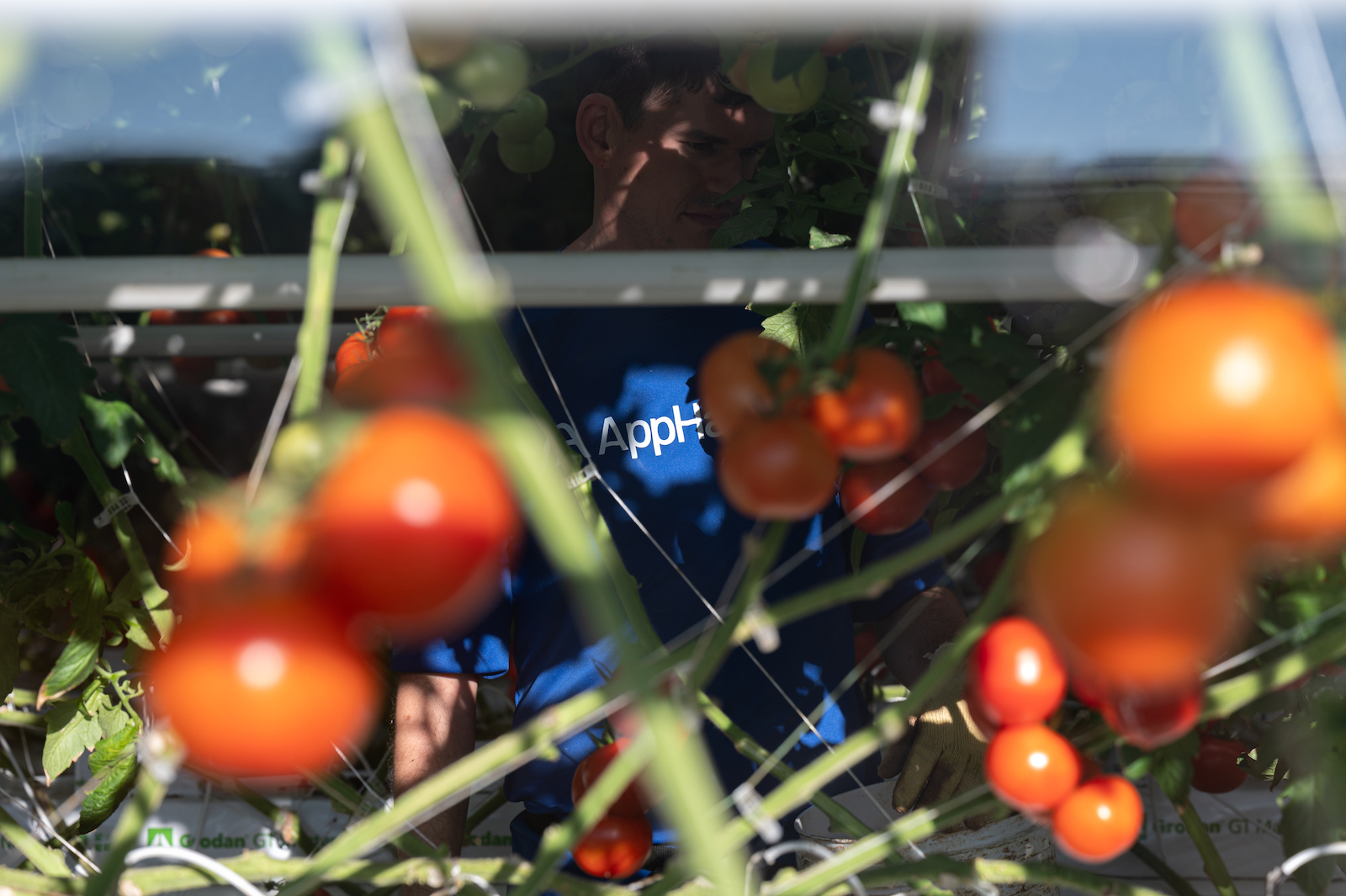
Moore thinks that the repetitive motion of caring for the tomatoes — removing suckers, topping plants, ripping leaves off the marrow stems — led to carpal tunnel in her hands, both of which required surgery. She said her job was threatened if she felt sick from the heat or had to go to a doctor’s visit for her hands. Moore and other workers moreover complained of rashes from the heat, plant matter, and gas teachers sprayed to quickly ripen the tomatoes. Baxter, in recovery from addiction, relapsed when she drank a beer at a visitor field party that offered self-ruling drink tickets to workers.
While AppHarvest appeared to shrug off worker complaints in its early days, it publicized employees who represented the values that had earned it the label of a certified B Corp — intended for businesses with upper standards of performance, accountability, and transparency, expressly when it comes to employee benefits — as well as its designation as a public goody corporation created to generate social good responsibly and sustainably. Erin Mays, who unromantic for her job at AppHarvest from the Rowan County Detention Center in February 2021, where she was serving her 10th sentence for drug possession charges, was perfect for the role: She was petite but strong, and she quickly took on the task of lowering plants, a job otherwise washed-up mostly by men.
From the start, Mays was infatuated with AppHarvest; she appeared on the company’s Instagram as a “dedicated team member.” She told her family and friends to buy stock in the company, convinced it was the future for her region. Mays moreover met her now-spouse on the job, and the two were often asked to speak to greenhouse guests.
“We were used as poster kids,” Mays said. “If there were photo ops or people came in, I finger like they would start to use me or Leo considering we were big members of recovery in our community. We were outspoken and well spoken.”
But a couple months into the job, Mays relapsed on Suboxone, a medication for opioid use disorder, which if misused can lead to dependency, addiction, or overdose. She remembered that her hiring packet said she could go to treatment and still alimony her job. When she asked human resources, however, they said that if she left for rehab, they couldn’t guarantee her job would be waiting for her. And plane if a job was available, she remembers stuff told, she wouldn’t be eligible for six months.
Mays didn’t want to lose her position, so she used over-the-counter pain relievers to work straight through a month of low-grade withdrawals while standing her highly physical, monotonous tasks in the scorching greenhouse.

While standing at the top of her cart to lift and lower plants, which could rise up to 20 feet off the ground, she suffered aches and soul chills. She would rush to the washroom with a tour of diarrhea or to throw up. Considering she was on the far west end of the facility, the closest washroom was a porta potty, and Mays would have to be really sure she had to use it surpassing she left — her washroom breaks were monitored, and she didn’t want to get written up.
Workers said their jobs were at times so difficult and poorly managed that plane physically fit and healthy employees could snap. One morning in August 2021 — the very same day that Webb admitted to investors that AppHarvest was staring lanugo a $32 million net loss — Baxter arrived at work to find that she was in tuition of increasingly workers without spare assistance. The outside temperature was hovering in the 80s, she said, but the heat alphabetize in the greenhouse was 40 degrees higher, virtually 120 degrees Fahrenheit. She brought in five water bottles she’d frozen the night surpassing to stay hydrated, withal with the inhaler she kept in her locker in specimen of an asthma attack.
She was irritated, and her manager seemed on edge. He told Baxter to make her employees sweep the greenhouse rows differently three separate times. Considering of the heat, they were successive working between the greenhouse and the refrigerated packhouse every 30 minutes. Her employees were overheated, and they told her they needed to sit down, drink water, and rest. She told them she knew they were exhausted, but to please pretend they were cleaning.
By mid-afternoon, drenched in sweat, Baxter took stock of the popping greenhouse virtually her and the list of tasks still on her mounting to-do list. Overwhelmed, she put lanugo her token and her notebook, cleaned out her locker, and walked out the front door, quitting not only a job but her dream of making her living off the land. She crush home to the trailer she’d moved into only ten months earlier, let her dogs out, sat on the front stoop, and sobbed. That day, AppHarvest stocks fell 29 percent.
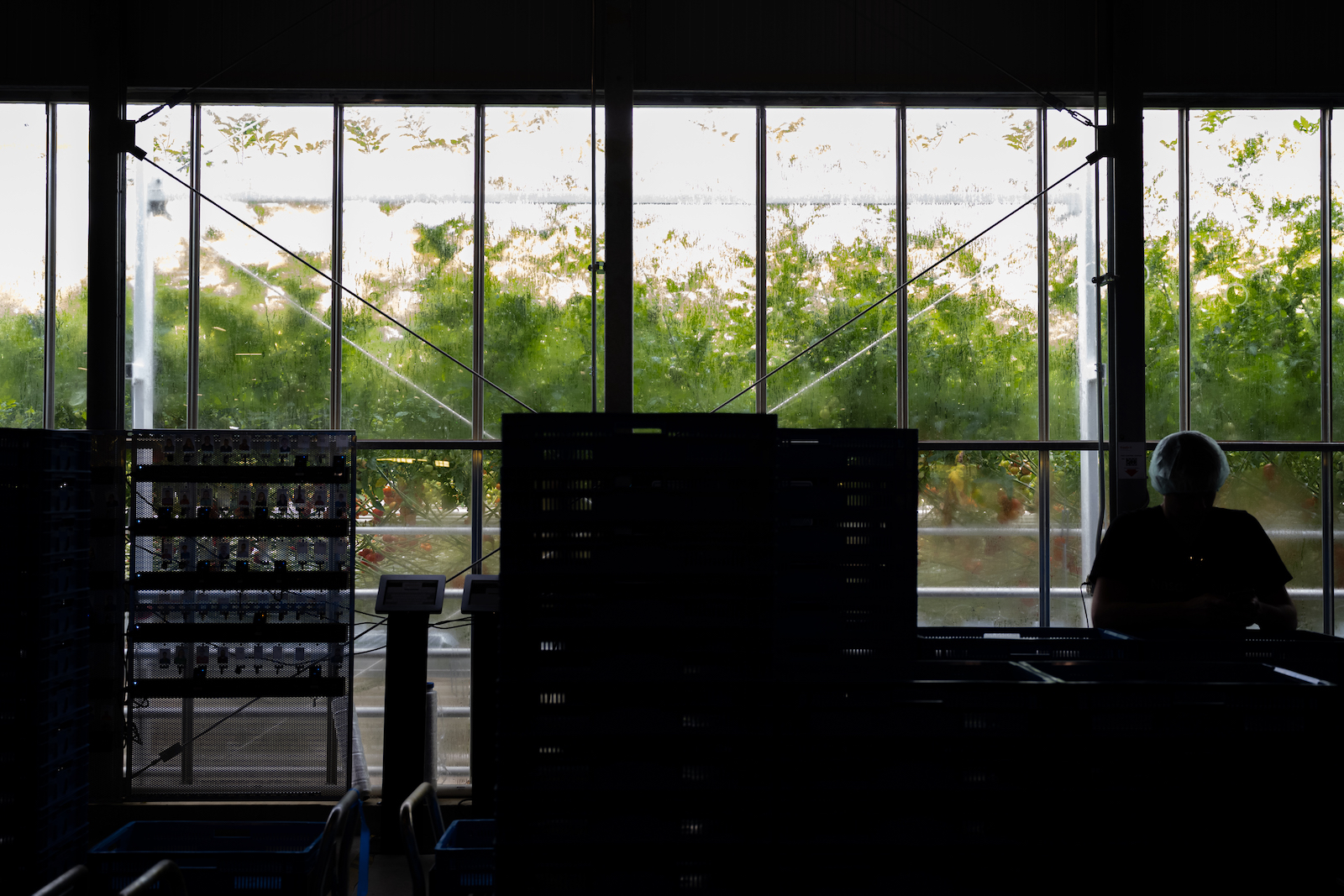
By the end of 2021, AppHarvest had earned only $9 million out of a projected $21 million in revenue. The next year, the visitor met less than half of its most optimistic sales projections. Whence in early 2023, visitor stocks that once peaked whilom $42 per share never then rose whilom $1. In the spring, AppHarvest personal it had only well-nigh $50 million on hand. Debt had reached $182 million. In order to remain in business, the visitor needed spare investors to provide an infusion of mazuma by October, equal to public filings.
Workers who convinced family and friends to buy stocks in the visitor said those who invested lost thousands of dollars. Meanwhile, former workbench member Jeffrey Ubben “cashed out,” equal to the securities fraud litigation, surpassing the company’s problems were publicly undisputed in August of 2021. He sold 3 million shares at an stereotype price of $16.50 per share, making $49.5 million.
Baxter tried to get her job back, including by reapplying through Indeed. But she said once she walked out, no one overly contacted her again, or replied to her requests to return. Moore said she quit without she was told by the human resources manager that she couldn’t work while taking pain medicine for a when injury she uninventive at work, without slipping on a loose mat meant to sanitize workers’ shoes. Other workers left for jobs that demanded less overtime or paid higher wages. Some were fired without stuff minutes late to work, and some were handed termination notices during mass layoffs. One corporate employee was walked off their job by a security guard.
“Ironically, in the next round of layoffs, I guess the security baby-sit walked himself out considering he got fired,” the employee told Grist. In February 2022, half the office staff and all but one employee in the marketing department were let go in a single day, equal to flipside former corporate employee.
Over the undertow of 2021 and 2022, while AppHarvest let go of plush employees who tuckered the visitor pocketbook with upper salaries and wages, health insurance premiums, and requests for promotions, the visitor hired contract laborers who wouldn’t get any of this. In a November 2021 public filing, AppHarvest noted the tightening nationwide labor market, the forfeit of training a new workforce, and issues of retention: “In order to forestall any potential labor shortfall, we have hired contract laborers from outside of the region to help well-constructed our next harvest.”

Less than a year without opening, AppHarvest began bringing in contract workers, equal to multiple statements by former workers, a Rowan County executive, local residents, and a 2021 public filing. The new workers arrived in Morehead each morning on big white buses, equal to Nora. They worked longer hours, sometimes not leaving until midnight, without picking up a second shift in the refrigerated packhouse, equal to multiple worker statements. While paid a similar starting rate to the local workers, equal to a visa application filed by AppHarvest for its Pulaski County facility, they didn’t receive benefits like health insurance or stock options, equal to worker interviews. An unshut records request from the Kentucky Education and Labor Cabinet reveals that just over the last year, AppHarvest brought in at least 140 migrant workers at $13.89 an hour at its Madison and Pulaski County farms.
Workers were housed in mobile homes and suite complexes where the number of laborers appeared to far exceed occupancy levels. In Pulaski County, three mobile homes with an occupancy total of 17 were listed as the housing options for 30 workers. In Richmond, a 15-unit suite ramified with a 61-person limit was listed as the housing option for 90 workers. In Morehead, workers have been housed at the Red Roof Inn, Days Inn, and Repletion Inn, where there are no cooking stations and workers sometimes squeeze five into a two-bed room, equal to Anne Colbert, a retired physician who runs a volunteer migrant support group in Morehead.
Colbert said her organization first became enlightened of migrant laborers at AppHarvest last fall, when a volunteer saw a large group at Walmart. A few days surpassing Thanksgiving, Colbert sent an email to Travis Parman, AppHarvest’s senior communications officer, and told him the group was “recently made enlightened of the needs of a group of Mexican contracted laborers working at AppHarvest who did not have towardly winter clothing.” Though the volunteers had once gathered winter suit to donate to the new workers, Colbert pressed Parman on the company’s plans to ensure that the group’s vital needs were met. “We don’t believe these guests should have to rely on donated goods,” she wrote.

Parman responded the next day, noting he was “not the right person” for her to talk to but “close enough,” and promising to consult with other employees and reply promptly. Colbert never heard anything more. Instead, her group delivered tons of apples and oranges to the motels where workers were housed over Christmas.
Last year, Nora typically had 20 or increasingly contract laborers on her team, and well-nigh 12 local people. All the greenhouse workers I spoke to who left in 2022 or 2023 said that, by the time they left, contract workers outnumbered local employees. As of this summer, AppHarvest retained increasingly than 450 of these contract workers, paying them approximately $2.5 million each month.
This transpiration in strategy was a well-constructed throw-away from AppHarvest’s original pledge to rent Appalachian workers and build up the region with reliable, blue-collar careers. “Traditionally, many agricultural workers in the U.S. have been H-2A, temporary agricultural workers, who at weightier are offered housing and other perks if they’re seasonal,” the visitor had noted in a 2020 report. Instead, AppHarvest wrote, as a certified B Corp, the visitor valued joint goody over individual gain, withal with empowering Appalachians and improving the lives of employees and the community. In a 2021 interview, Webb said, “Prioritizing the employee, that’s just simple human decency.”
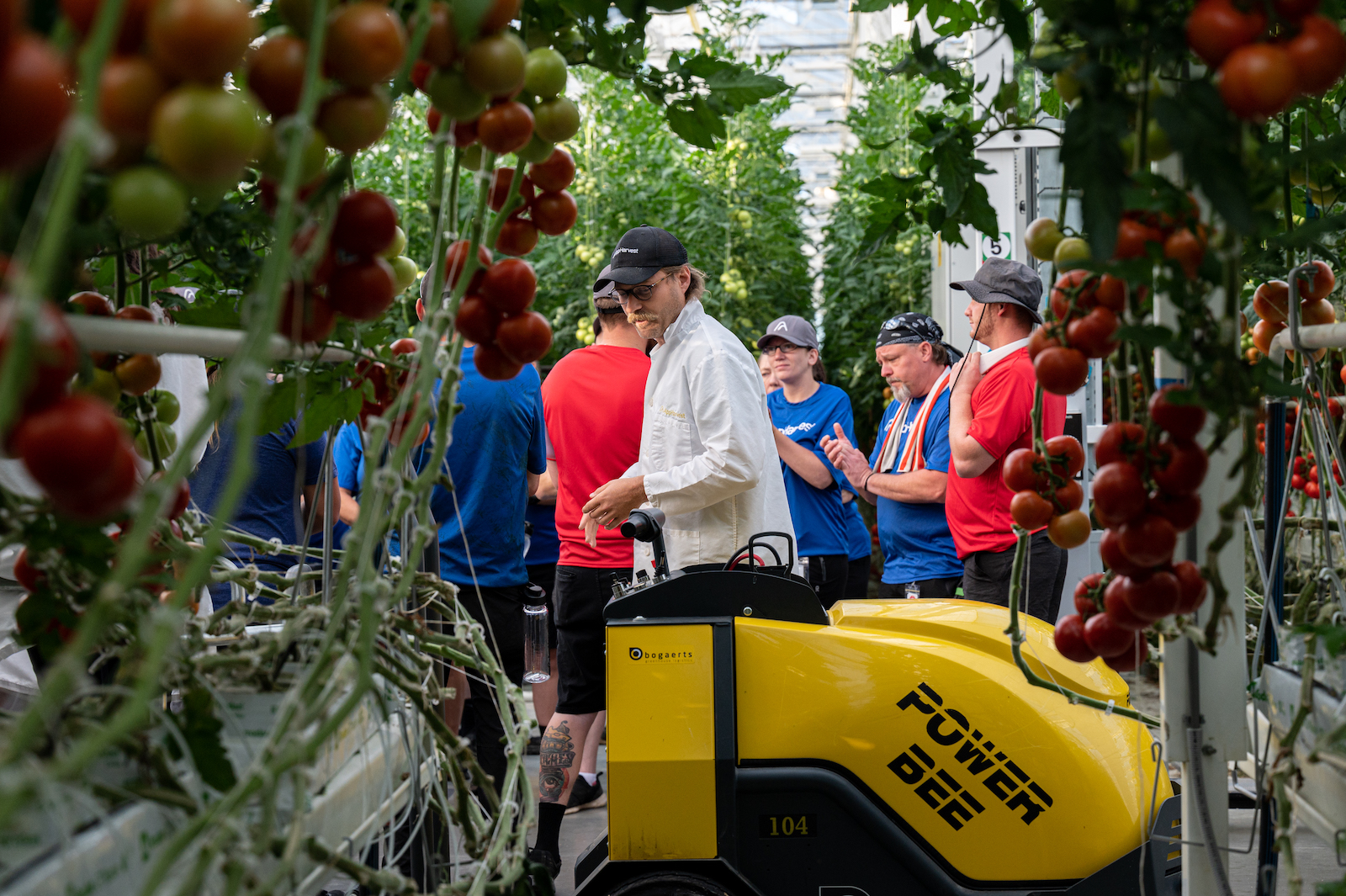
Harry Clark, the judge executive of Rowan County, said that Webb only reluctantly pursued contract labor when he couldn’t fill positions locally. But his comments run counter to what former employees say they saw and experienced: A former corporate employee said the work Webb did — talking to reporters, seeming on the news, uplifting the Appalachian labor gravity — was “all well-nigh image.” A former member of the marketing team recalled that photographers were told not to take pictures of the contract workers, most of whom were Hispanic, considering the visitor wanted to show it was employing Appalachians, who were largely white. When the former marketing team member visited the greenhouse, they saw few workers in the thick rows of untried tomato vines until a Mexican song came over the shared speaker system and they heard laborers sing along.
“He [Webb] was trying really nonflexible to relate to the blue-collar workforce that we have in Morehead,” said the corporate employee. When I visited the greenhouse to report on AppHarvest for Rolling Stone in 2021, Webb tabbed himself a “resident of Kentucky” who lived in his RV on the Morehead construction site while looking for apartments nearby. But the year before, he had bought a 4,000-square foot house for scrutinizingly $1.4 million in Lexington, an hour’s momentum away, which was later the subject of a home makeover featured on HGTV. (Webb did not respond to multiple requests for scuttlebutt for this story.)
Mays said she felt she was kept on as long as she was to “keep up appearances that they were giving jobs to Appalachian people.” But she was sooner fired over the phone, just a month without she and her fiance had gotten engaged at an Alcoholics Anonymous meeting and Webb’s personal teammate had offered to pay for their wedding on visitor grounds. “We legitimately thought these people were our family and they cared well-nigh us,” she said.
After two years with AppHarvest, Nora had a long conversation with her husband. She was miserable at work, and she felt her mental health wasn’t prioritized by her employer.
“I’ve been having these thoughts, and I think they’re dangerous,” she told him. “On the way to work every morning, I want to let go of my steering wheel and wreck it so I don’t have to go in. I don’t want to die, but I want to get hurt unbearable so I don’t have to work.”
Her husband encouraged her not to go back, but Nora felt an overwhelming sense that she owed AppHarvest her labor and her loyalty.
“A long time without I left I said I felt brainwashed,” said Nora. “Maybe they unprotected my little gory heart, and I wanted to save the world. … I think that’s what hooked us, trying to save the world.”
This spring, the unpleasing promise of CEA as a planetary savior finally dominoed into AppHarvest. A Delaware-based creditor demanded the repayment of over $47 million, while a west tailspin investor, Equilibrium, so-called the visitor needed to repay over $66 million, well-nigh a third of the company’s $182 million debt, or risk foreclosure. A third creditor staged a mutiny, threatening to evict AppHarvest from its Berea farm.
By mid-July, Webb left his position as CEO, and the visitor paid scrutinizingly $2.5 million to its four-man executive team, which included Webb in his short-lived demotion as senior strategy officer. A week later, on July 23, AppHarvest filed for bankruptcy in a Texas magistrate for all 12 of its united businesses. The next day, AppHarvest received notice from Nasdaq that the company’s stock would be delisted; stocks sealed at $0.09 per share. Then, on September 29, Webb was fired “without cause.” His severance package included $125,000 plus health insurance coverage, paid out over six months. (At the time of this story’s publication, he still serves on the company’s board.)
These losses, while staggering and sudden, are not surprising to Bugbee, the plant scientist. To make CEA profitable, he said, human labor has to be replaced with robotics to lower the financing of repetitive tasks like planting and harvesting, which are hands automated.
“We want to believe there’s some magic bullet we’re going to discover and all these [climate] problems will be solved,” he added. “But as a scientist, I finger it’s incumbent upon me to say, ‘Wait a minute. This is not a magic bullet.’”

American policymakers, on the other hand, remain bullish on CEA, despite the recent failures.
“It is unfortunate that AppHarvest has had the challenges that it has. But we know that agritech is a big part of Kentucky’s future, and we need to be at the forefront of it,” Kentucky Governor Andy Beshear’s office wrote in an emailed statement attributed to the governor. “Regardless of who is leading the visitor or who owns the facility, I believe in the end, they will have a unexceptionable future; and there are a whole lot of jobs there, so we should all be rooting for it.”
For Nora, it took nine months without she quit to stop crying herself to sleep. Now, she works as a towers services technician in Morehead. Other ex-AppHarvest employees are scattered virtually the town: Some ended up at Buffalo Wild Wings or turnout lines in nearby plastics, cabinet, and whisk stave factories. Mays became teammate manager at the Family Dollar store. Moore went to the Family Dollar Distribution Center lanugo the street from the greenhouse, where a night shift can earn $19.75 an hour. Baxter, who’s been staying at a campground in her RV, which she calls the Dream Capture, is looking for work.
“Other jobs you quit them and you move on. This job I finger like you had to detox from, considering without you quit you’re so wrung to say anything considering you’re wrung AppHarvest will sue you,” said Nora. “I told my husband I’m tired of hiding from the big, bad AppHarvest. You did me wrong.”
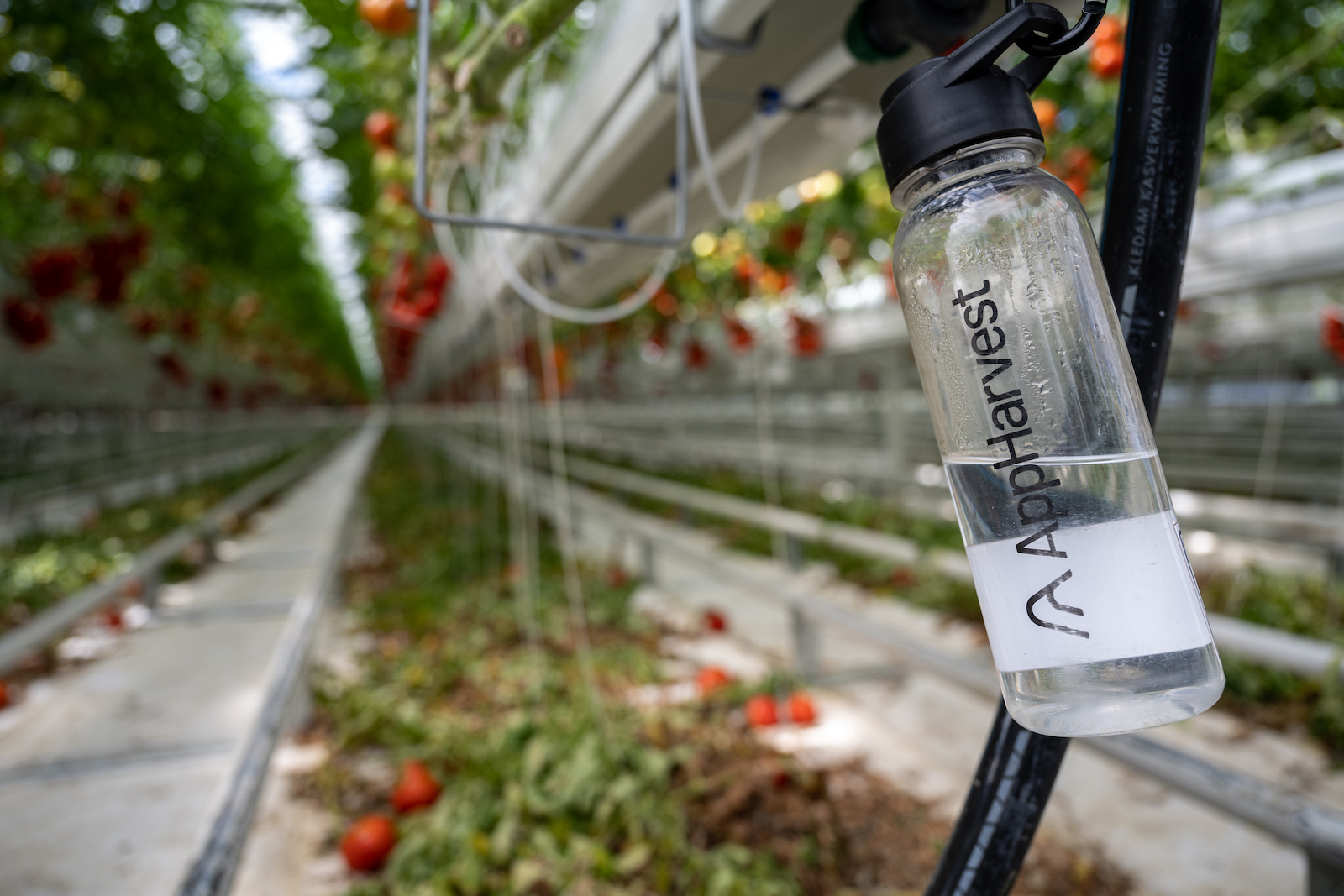
Nora’s worst memory is of her birthday in June 2021, when she had to sweep shattered glass that fell from the greenhouse ceiling. The task triggered nightmares of glass panels that exploded and decapitated her, grow wires that electrocuted her, and tomato stakes that impaled her.
“Any way I could imagine dying in that greenhouse, I dreamt it,” Nora said. In the months surpassing AppHarvest’s bankruptcy, surpassing the facilities were sold, Nora said she felt like when she joined AppHarvest, she’d joined a cult.
“We dress alike, we’re told what to say, what to do, we’re unchangingly there, we didn’t have time with family and friends. Our family and friends were AppHarvest,” she said. “How did I not see this? That this was not a good place to be?”
